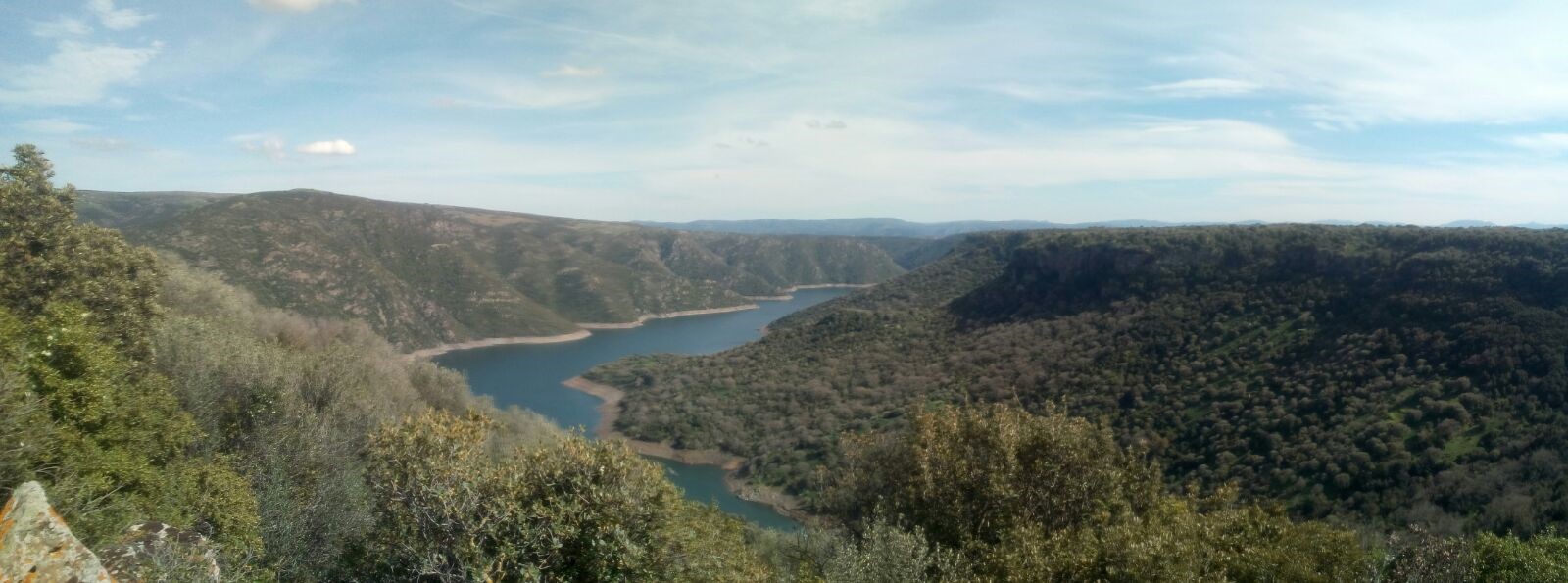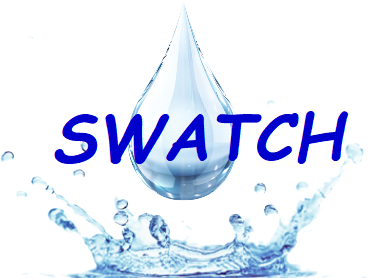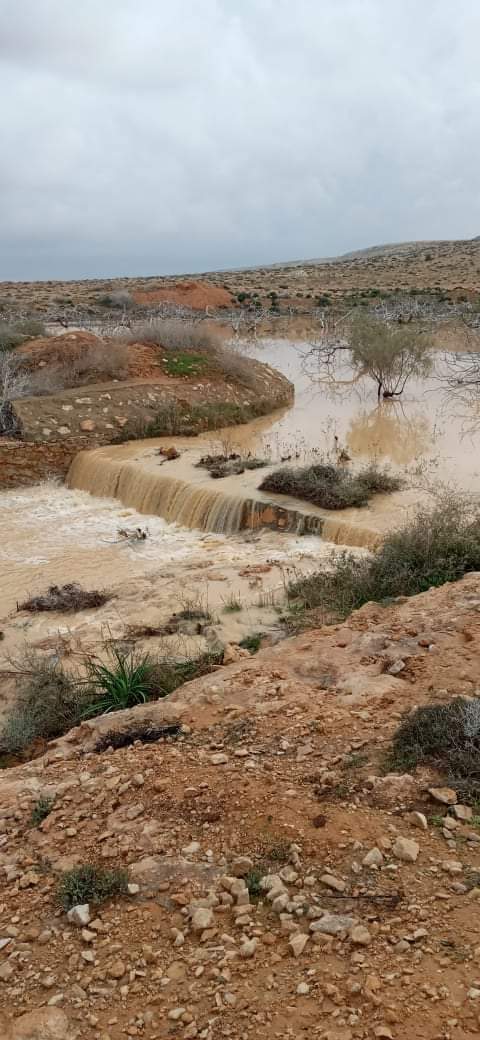
About the SWATCH Project
SWATCH
Strategies for increasing the water use efficiency of semi-arid Mediterranean watersheds and agrosilvopastoral systems under climate change
Project Start Date: 01/01/2020
Duration: 36 months
The project aims to develop innovative methodologies to increase the social-ecological Water Use Efficiency of managed ecosystems along the Mediterranean biome and climate types, in the face of drier and more extremes climates. It relies on 9 study sites (3 in Italy, 1 in Algeria, 1 in Cyprus, 2 in Tunisia, 1 in France, and 1 in Egypt), which cover a wide range of spatial scales, climate, and ecosystems. SWATCH activities are structured into seven interconnected work packages, including WP1 on management and WP7 on dissemination and communication. WP2 deals with the Monitoring of experimental fields and hydrological basins, addressing innovative methodologies for EvapoTranspiration (ET) measurements in typical heterogeneous Mediterranean agrosilvopastoral systems and agricultural environments. It includes innovative eco-hydrologic monitoring approaches in ephemeral rivers and wadis along the Mediterranean biome and climate types, establishing a transnational Mediterranean river monitoring system. WP3 focuses on Ecohydrological modelling. It uses outcomes from WP2 to address innovative ecohydrologic models at several spatial scale. Models will be calibrated at each case study, comparing observed and simulated time series for different parameters. WP4 includes the acquisition of satellite images and the development of a data assimilation systems for assimilating remotely sensed and field data into ecohydrological models at the watershed or agricultural district scales for optimal characterization of soil water balances and the underlying water use efficiency. The data assimilation systems will be integrated in the VDM LSM developed within WP3. WP5 includes the development of land cover change strategies under actual and future climate change scenarios for optimizing the use of water resources, while WP6 includes the development and improvement of water management and planning systems for the optimization of the water infrastructures and uses.
The SWATCH project is funded under Section 2 PRIMA Call 2018 by:
- The SWATCH project is funded under Section 2 PRIMA Call 2018 by:
- Partnership for Research and Innovation in the Mediterranean Area – PRIMA
- Ministero dell’istruzione, dell’università e della ricerca – MIUR (Italy)
- General Directorate for scientific research and technological development – DGRSDT
- Research Promotion Foundation, Research and Innovation Projects Unit – RPF (Cyprus)
- STDF – Science and Technology Development Fund (Egypt)
- Agence Nationale de la Recherche – ANR (France)
- Ministry of Higher Education and Scientific Research – MESRS (Tunisia)
The specific objectives are:
- OB1: to develop and implement innovative methodologies for EvapoTranspiration (ET) measurements in typical heterogeneous Mediterranean agrosilvopastoral systems and agricultural environments;
- OB2: to improve the eco-hydrologic monitoring in ephemeral rivers and wadis along the different Mediterranean biome and climate types, establishing a transnational Mediterranean river monitoring system;
- OB3: to develop data assimilation systems for assimilating remotely sensed and field data into ecohydrological models at the watershed or agricultural district scales for optimal characterization of soil water balances (water content, storages and transfers) and the underlying water use efficiency;
- OB4: to identify the impacts of contrasting vegetation and crop types on the soil water balance, surface runoff, and water use under current and past Mediterranean climates;
- OB5: to predict the impact of future climate scenarios on soil water balance, runoff, and water use;
- OB6: to develop a set of land cover change strategies (e.g. forestations/deforestation, use of more water use efficient crops and woody vegetation) for climate change scenarios that optimize the use of water resources and increase the resilience of agricultural and agrosilvopastoral systems;
- OB7: to improve the multipurpose and multiuser water resources management and planning systems for the optimization of the water infrastructure (e.g., reservoirs, groundwater recharge, water harvesting) and uses (irrigation, animal production systems, drinking and industrial activities), and management and planning under current and future climate change scenarios while preserving natural ecosystems.
- For reaching the above objectives, stakeholders will be actively involved, sharing knowledge, experiences, observations, and findings, throughout the duration of the project and beyond.
Expected impacts
The proposal will have positive social and economic impacts. The project objectives respond to common priorities on societal challenges of most of the international organizations dealing with the protection of the planet’s natural renewable resources and food security, which are enhanced due to the increase of human pressure and of climatic changes on fresh water (European Environment Action Programme, Horizon 2020), the FAO, the GEOSS Water Cycle Integrator, Group on Earth Observations – GEO, the IPCC, the WFD 2000/60, World Council for Sustainable Development, the Protocollo di Milano for EXPO2015, Pope enciclycal “Laudato Si”. The project economic impact will be significant for agricultural development and its sustainability since it will increase the system efficiency and decrease the overall costs. Stakeholders will be involved and will have a main role in the project. The project will provide to the stakeholders the scientific approach and results for defining the planning and management strategies for both current and future climates. A main part of the project will be the dissemination of the results to the stakeholders and to the society in general, considering the impact on social customs and traditions.
In most Mediterranean regions water and environmental plans are missing and, when available, they do not properly include future scenario impacts. The future scenarios are predicting decrease of water availability with the consequence that existing water resources plan are in general too optimistic as they assume water inputs (surface and groundwater) that will soon be no longer available. At the same time, environmental plans need to consider the climate change effect for both CO2 budget and water resources use of vegetation and water resources availability to vegetation growth, which can impact on species type (i.e., selection of species more resistant to drier conditions) and their spatial distribution (less water implies less density). Our proposed methodology allows to adequately develop water resources and environmental planning also for future climate change scenarios. The strong international cooperation of this project is a crucial aspect. Climate change is affecting water resources in the Mediterranean region, and there is the need to strengthen international cooperation in water research between Mediterranean countries, in order to develop strategies that are actually effective and concrete as they take into account the real and varying conditions across areas that present extremely heterogeneous conditions. In the project, European partners will collaborate with North African partners providing a unique opportunity to knowledge and experience exchanges. Indeed, the broad, diverse and international partnerships of SWATCH are key points of the project. All the academic partners have strong expertise developed at the best international schools, which aspire to collaborate for knowledge and experience exchanges. Experts of a wide range of complimentary fields, e.g. hydrology, hydraulics, ecology, forestry, agronomy, micrometeorology, and geophysics, are involved, providing an excellent opportunity to advance water resources science of semi-arid and arid Mediterranean regions. The project addresses case studies covering a wide range of spatial scales and ecosystems, and a large rainfall gradient. This project offers a unique opportunity for exchanges of research and knowledge, which is the base for increasing the research development in water resources. Only by analyzing sites with very different spatial scales, vegetation covers and climate conditions, it is possible to understand deeply the complex ecohydrologic processes, and the strongly nonlinear dynamics between soil, vegetation and atmosphere, which is the key element of environmental planning strategies for optimizing the water use and increase the resilience of agrosilvopastoral systems.

